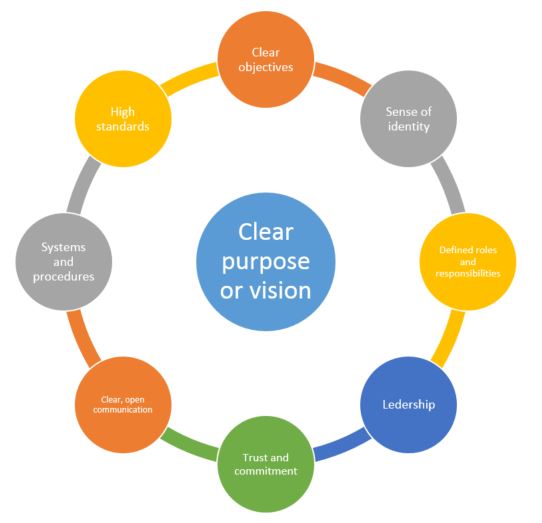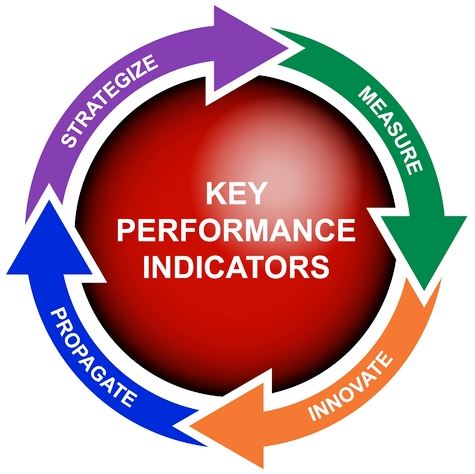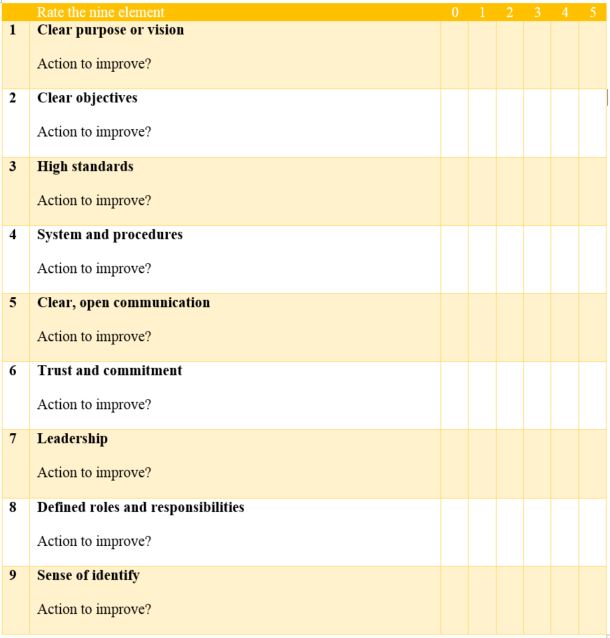Scrum.as - Blog
2015-06-01 - Create effective teams
Nine elements for effective teams
If you want to build effective scrum teams, there are at least nine elements, which can help you, when you are looking for ways to make the team more effective:

1 Clear purpose or vision:
If we do not know where we are going, how do we know if we get there?
Before people want to commit to anything, we want to know what we are doing, why and what to achieve. Many leaders often overlook this, or they know their vision but forget to share it with the team members. Clear purpose or vision is necessary to get people to commit.
2 Clear objectives:
Both clear team goals and individual objectives (goals) are needed for a team to get more effective. For objectives to be useful, they must be clear, specific and understood. For example, a goal like "To have less bugs in development phase" is not very useful because it does not identify what profitable means or when it should happen by.
A more useful goal would be: "decrease the development bugs in CRM Change request development by 10% by the end of Sprint 6"
S M A R T is a common acronym used to describe setting goals or objectives. Briefly
SMART goals are:

Once the goal is set, the next step is to determine how you will get there and what role each person will play. In this step, it is important that all team members have the same understanding of what is to bhieved and who is responsible for achieving it.
3 High standards:
Effective teams take pride in the performance, the way they work and the level to which they work. Having clear standards of performance or key performance indicators get a stronger commitment - of course only if the team is involved in setting these.

So, what are the key ingredients to a project's KPI's?
- Key Performance Indicators involve specific "measurements." These measurements must be very relevant to the project, clear and demonstrate exactly what results are desired. If you cannot measure it, you cannot manage it, and this is where KPI's come into play.
- Innovation is a cornerstone for high-performance teams. Your people must be fully engaged in the need for creativity and innovation on an important assignment in order to achieve outstanding results. Innovation is the engine that drives top results.
- The KPI activity to "propagate" refers the ability of the manager to foster growing knowledge about the project, the innovation required and the engagement required of each team member to multiply the results by sharing and integrating with others.
- The last step in the process is to "strategize." This applies not only to the creative interaction for innovation but in the project status reviews as well. Important projects and assignments require regular status reviews to bring the team, or sub-sets of the team, together to review progress. In these meetings, the KPI's are discussed in terms of progress toward completion of the project and the team strategizes on what to do next or how to over-come any obstacles, etc.
4 Systems and procedures:
Implementing establishing clear ways of working, reporting, interacting and implementing processes can improve efficiency and effectiveness. These can evolve as the team becomes more accustomed to working together and as they recognise the benefits of having them in place.
5 Clear, open communication:
Sharing of information, both formal and informal, saying what you think and asking what you want are all essential for effectiveness in a team. So as a Scrum Master you have to make sure that all team members feel that the get heard and that they learn to listen to other team members. It is important that team members listen to each other properly, respecting everyone's contribution or point of view. To disagree is part of this as well.
6 Trust and commitment:
Of course, it is good if interpersonal relationships are strong, but it is not essential in a team. More important it is to be able to respects and work with colleagues, feeling they will do what they promise. Being reliable and trustworthy is far more powerful than liking each other.
7 Leadership:
Leadership style and approach needs to move with the development of the team. In high performance team, we often see that leadership is shared around the team according to the need for different qualities and skills.
8 Defined roles and responsibilities:
A high performance team collaborate in a professional way between team member's skills, and build up clear roles and responsibilities, which are accepted by all team members. Most people like to know exactly what they are supposed to do and how they will be assessed against it. Having clear roles and responsibilities reduces duplication of work and effort and avoid confusion of expectation.
9 Sense of Identity:
Feel that you belong in the team is important. Feel that your contribution are part of something worthwhile is important. Most human beings like to have a feeling of belonging to something and be valued. Often we see teams to create various rituals, tokens, etc. to build this even more.
You can use these nine elements to asset your team against each of them. In addition, it can be a very powerful team-tool if you get the team members to it from their individual perspective and the come together to share their thoughts.
Rate each of the nine elements from 0-5 (0 = really poor; 5 = really strong). Combine the score from all team members and from this, you and the team can identify areas to improve. Discuss and agree an action plan to improve the identified areas.

Hope you can use this in improvement of your team. This will be part of the Advanced Scrum Master certification from www.Scrum.as - Please visit our website, we have a 100% agile academy for more free Learning.
Author: Steen Lerche-Jensen
Copyright © 2018 - 2025 by Scrum.as // All Rights Reserved. // Privacy Policy






